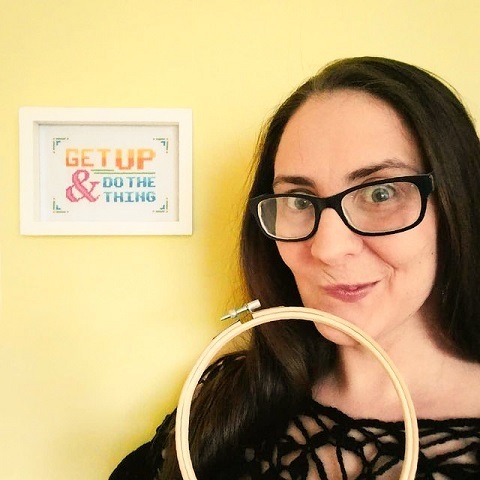What is something like a hobby or skill that you belive almost anybody should give a try, and what makes your suggestion so good compared to other things?
i feel like this is a descent question i guess.
Biking.
Moving under your own power has so many benefits:
- It’s fun
- It’s cheap (or can be, to be fair)
- It’s good for your health
- It’s good for the planet
I started cycling to commute about a year ago and it’s been such a wonderful thing for my mental and physical health, not to mention my bank account. Beware that you may get sucked down the Not Just Bikes rabbit hole if you’re not careful and end up becoming a walkable/bikable cities advocate as I have.
epic!
It’s fun
My knees disagree but each to their own ;)
I cringe watching someone struggling to turn the pedals when they are riding a multi geared bike.
Cycling is good for the knees, if you’re not staining to turn the pedals. That’s why gearing exists.
Use the gears to make the pedaling easier.
Also to add, the seat height should be adjusted such that your leg is just under full extension when on the pedal at its lowest point. Otherwise you are wasting a ton of power with every stroke, and will feel it in your knees much quicker.
My Hemorrhoids also disagree
Is there a bike you would suggest for a beginner to buy into that isn’t too expensive but also not junk? Budget of $300 or so, but can flex.
There are so many different models for different use-cases that it’s hard to recommend a specific one. With that budget, I’d look for something used for sure. For my use-case, a city hybrid-styld bike is the best - fast, but with features that are convenient for commuting (rear rack, pedals that don’t require cycling shoes that clip in), but depending on what you want to do, you might want something different.
One good tip is to go talk to your local bike shop about your needs, they are usually really helpful when it comes to this type of thing.
UK weather says no
Crochet
Pros
- Documented mental health benefits
- Cheap to start, can learn from online tutorials
- Easier than knitting
- Make cool toys, clothes, home accessories, whatever you want
- Get to smush yarn into your face on a regular basis
Cons
- Fibre crafts gateway drug
Any online tutorial that could help me get started you recommend?
Well, I don’t want to be That Person but technically I made a (long) video for total crochet beginners that I know quite a few people have used to great success. It’s frontloaded with theory though and more for people like me who learn by understanding the “why” of what they’re doing.
If you prefer to do it in shorter chunks or without all the tedious theory, which let’s face it most people do, I’ve heard really good things about this Bella Coco series which has, um, slightly more views than mine 😅
There’s a fairly new (aren’t they all) crochet community over at !crochet@lemmy.ca (direct link) that seems very nice so far, I’m sure they’d love to help with your first attempts too!
I love the smushing! Find it so hard to learn though
Sounds like you have the most important part of the hobby down already, at least!
(see my reply to the other comment for various maybe-helpful links)
I like crochet, even though I’m really bad at it. It’s very peaceful (unless I’m counting stitches, then it’s a constant fight against my ADHD), and I have a bunch of cool scarves now.
I think that’s part of why I suggested it over knitting, you can do the complex projects with the counting and the actual effort OR you can just mindlessly crochet a long scarf or a bunch of cotton washclothes and end up with something practical.
Knitting is a lot slower and also less suitable for some of those small projects like washcloths so unless it’s basic garter stitch you pretty much know you’re gonna have to concentrate at least a little bit.
My girlfriend does both, and it’s definitely amazing how much faster crochet is! Like, “oh, here’s a giant amigurumi dragon I whipped up in a week,” or “here’s a poncho made over the weekend for our vacation,” with crochet, versus “I have to frog 4 weeks of work because I slipped a stitch and didn’t notice.” Granted, she’s much better at crochet (by her admission), but knitting seems tough. Love the stuff you can make with it though.
Haha, yep that sounds about right! I do love being able to do both, some things you can do with knitting you just can’t do in crochet especially if you need to create a nice drapey fabric. Being bistitchual is the best of both worlds!
deleted by creator
ive been wanting to get into game dev but it seems like alot of work and i suck at everything, also im limted with software and im not even sure what game engine or thing to use, if that makes sense. do you hav eany advice or something you want to share?
I’m a hobbyist game dev also. Main advice would be that yes it is a lot of work and you may suck at everything, but the only way to get any better is to get started.
Pick an engine, it really doesn’t matter which for the most part (I used to use Unity and recently switched to Godot, the way people evangelise the latter can be a bit offputting but as an objective user of both I can say they’ve got pros and cons like anything else). The exception being if you want to make a very specific kind of game like visual novels for example, then you’d be best served learning Ren’Py since that’s what the engine is for.
Other than that, get something installed and hunt down some tutorials for it. Doesn’t matter if they’re irrelevant to what you hope you’ll one day make, you’re just trying to learn the basics here. Take what you learn in tutorials, and modify it in some way, that helps things sink in better and gives you more understanding about what your code (or your blender animation, or whatever) is actually doing and how it works.
TLDR: Just get stuck in!
p.s. there’s a few general “gamedev” communities on here so far but I think the most active one is !gamedev@lemmy.blahaj.zone (direct link). Check out the pinned post in there with links to neighbours like engine-specific communities etc. Someone is also organising a Fediverse game jam for next month so that could be a good way to join a team and get started doing small tasks on a game that you wouldn’t be able to make yourself yet.
Take a look at Gadot 4. As a beginner you can think of it like an open source unity. But they just had a major update and seems to make a lot of the tedious aspects of game dev and streamlining them. Everything is an object which is really nice and they have a scripting language based on python. Easy to read and write
I reccomend trying out GB studio. It makes gameboy games and comes as one binary file. Not too crazy to learn. I liked the music player thing.
Python with PyGame can be quite a good start. And if you’re just trying to build something for fun maybe use free assets from the internet.
Taught myself python at 50 years of age. My God, being able to code is like a superpower. I started out doing some things to make my job easier, later developed an interest in web scraping and data analysis, now I am tinkering with machine learning. I regret listening to people who told me that a strong background in math is required for coding.
I can only assume you got downvoted for this because people think you’re advocating stealing assets. So for anyone else reading this, there are actually whole websites devoted to providing free assets for use in games.
3D printing. Suddenly you are able to fix small plastic shit in your house which would otherwise mean throwing out the whole goddamn thing. Best feeling ever to repair and save stuff.
i wish i could 3d print board games and such but printers are so pricey.
You might want to check out laser cutting. Same prize range and so much faster for board games. (basically works like a 2D lasercutter, most commonly used with wood or plexi glass).
I’ve heard good things about Ender 3 printers and their clones if you’re willing to tinker. AFAIK, the experience right out of the box isn’t great, but they can be modded and upgraded over time and can be fairly capable.
That being said, those might still be too expensive depending on your geo. I seem to recall reading about reprap projects designed to be built as cheaply as possible using harvested components from things like old scanners and shit.
Baking - fresh warm bread is so good!
Sewing - it’s nice to add pockets to things 😁
Oh my god yes the lack of pockets! Changed my life when I learned to sew.
bread is good and sewing you get to make cool cosplays sometimes, so overall bread is good.
Thinking of learning sign language…
I only know the tiniest bit (learned some as a kid, I don’t remember why) but even if it never comes in useful I can confirm it’s a great party act.
that would be useful.
Some form of metal working, and specifically machining. I really enjoy machining, and I’ve been able to make some genuinely useful things. The tools are actually really quiet and stateful, unlike woodworking power tools which SCREAM at you like horrible demons. Seeing people look at their first top, or pen, or miniature cannon is great. Plus, things made in metal are at least slightly shiny.
For example, you could make dumbbell handles and plates like this: a photo of dumbbell handles and weight plates
Or a metal yarn winder like this: a photo of an all-metal yarn winder
The major downside is that it’s not cheap (not as expensive as boats, possibly more expensive than photography), and it requires at least a bit of space that you wouldn’t mind getting dirty. Luckily, I feel like makerspaces are starting to have more and more metalworking equipment.
you make some really good points!
Learning a new language. You learn a bit about how languages work, understand other cultures a bit better, usually learn new vocabulary for your native language, understand the relationship between different languages, learn the roots of loan words and generally helps your brain stay healthy, even by only studying the basics.
what lauguage would you recommend for people who only know english?
Bit of an off-the-wall suggestion but I was having real trouble learning other languages mostly due to all the cases (and sometimes genders). So I started learning Esperanto, which admittedly is not the most practical language to know BUT it really helped me understand languages more in general. It’s very simple to learn and easy for an English-speaker to pronounce, as well as having lots of recognisable words (the Esperanto for “yes” is “jes”, which is pronounced “yes” lol)
Now that I’ve gone back to learning German I’m feeling much more confident about learning in general just because I got some of the grammar concepts from a much easier language. Might be worth a look if you’ve struggled before.
Not OP, but I’ve asked myself this as well. I think it depends on where you live and what you want out of your language learning experience. If your goal is to learn something more useful in everyday life and you live in the southern US, Spanish is a great option. If you’re from Canada, French is probably the most useful. German and Mandarin are useful in the business world, but the latter is significantly harder to learn. If you’re not worried about maximizing the utility of what you learn, Norwegian is considered one of the easiest languages for English speakers, and let’s be real, Norway is awesome.
It’s more important that you stick with whatever you choose though. That’s the part I’ve struggled with.
To be honest I’m not a native English speaker so your advice is probably more useful anyway. My husband is British and has studied plenty of languages, finding Swedish and Norwegian definitely the easiest to pick up. Romance languages have more complicated grammar but you’ll find a lot more TV and movies to watch to casually pick up a bit more of the language, which I find useful because I only speak English as well as I do from watching a lot of TV (first with subs) when I was younger.
do you have any swedish tv shows or movies you could recommend? the more the merrier please, or any resources for it at all?
Spanish: it’s the most return per effort.
Esperanto is reckoned an easy pickup, has speakers globally, and will improve your default in most romance languages. The community is also quite nice, in my experience.
Esperanto seems to be pretty useless to invest so much time into learning it. Wouldn’t be learning “normal” language more beneficial anyway?
Running. Fairly cheap. Can set your own schedule. Improves physical and mental health, increases self confidence, can help with sleep and weight loss.
Cooking is a very nice, relaxing hobby and you also get to eat some good food!
It’s also very useful and an easy way to impress people.
It’s extremely difficult for me to cook regularly anymore, I just don’t have the energy. When I do choose to, though, I make it a fun event and it’s so satisfying. Put on some music, drink some beers and go to town.
I made Chinese noodles from scratch a while back and while they were SOOOOO GOOD, it was so labor intensive that I would only do it for fun and not to satiate myself lol. They were nice and bouncy noodles, cut a little smaller than chow fun.
noted
An instrument. It’s soul food and extremely therapeutic. Even if you suck, just learn to let it go. I find it’s really good for my mental health. I dunno, it’s music ya know? Lol
Public Speaking
You never know when you’ll have to say something in front of a crowd.
I’m so sorry, but I have to reply to this, I misread this as public spanking, and have been giggling to myself for about 15 minutes.
Apologies.
How dare you, you dirty dirty child. You have a dirty, filthy mind. You should be…
Wait, what were we talking about?
@QuietStorm Fishing: it gets you outside, and helps you learn about the natural world as a participant, not just an observer. You don’t need to spend a lot to get started and its often best if you go with a friend. I always practice catch-and-release and the experience is a morning or evening of peace.
Indoor gardening/hydroponics. Even in the smallest flat you can grow your own salad, peppers, radish, tomatoes, microgreens, etc.
Like a tiny stardew valley at home.
Cooking! It can be so rewarding, a fun way to impress or care for others, and you need to eat every day anyway so ample time to practice.
Almost all cooking can be done with practically no hardware beyond a sharp knife, a good sized cutting board, and a good pot or pan.
There’s so many patterns and combinations and different takes on the same ingredients that you can learn. The basics get you 80% of the way there


















